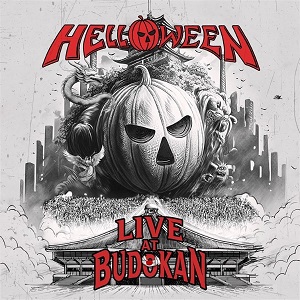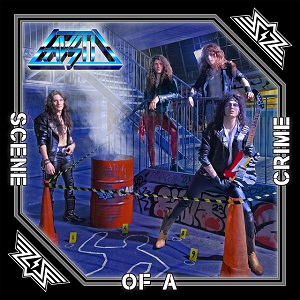MAGNUM - No Visitation For North America
July 1, 2011, 13 years ago
Yes, ‘tis true, shockingly. UK melodic hard rock mavens MAGNUM haven’t played these shores since they backed up OZZY OSBOURNE in 1982! Crazy, but alas, not about to change any time soon.
Still, that shouldn’t stop you from enjoying the band’s unique brand of “pomp rock,” an elegant, highly hooky form of mild metal that leans prog, leans HEEP, leans eminently memorable with almost every track.
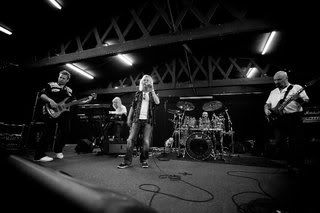
Fact is, there’s a definite Magnum sound, and it’s not changed much over the last, say, three albums certainly. Fortunately it’s a baffling mix of the above attempted… labels? “It’s difficult with labels,” laughs Stanway in agreement. “Because we appear in heavy metal magazines which, to this day, bemuses me (laughs). I can’t think of too many heavy metal bands with keyboards, for a start. If I had to choose one genre, I would say classic rock. It sounds British, which is good, I guess (laughs). We just approach a song in our own way. We’ve been doing it for so long now. So I guess classic rock would be the genre. Progressive, I think of bands like EMERSON, LAKE & PALMER as being progressive, with lots of time changes and stuff. We don’t tend to be progressive for the sake of it. The format of the songs remain pretty much a formula. You get a song, you get a verse, you get of chorus, you get a middle eight, you get a solo. There’s nothing very progressive about that from an arrangement point of view. We do concentrate very strongly on melody though. It’s nice to know that people are always singing our songs in their heads. So melodies are of prime importance, which is great from a keyboard point of view, which allows me to put flourishes and colours which perhaps I couldn’t do in a heavier situation.”
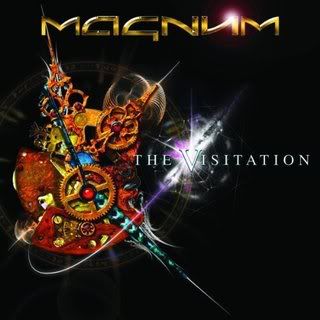
Magnum music also arises from an odd situation where guitarist Tony Clarkin writes all the songs, lyrics included, despite the band having a hugely regarded singer in Bob Catley.
“Yeah, it’s one of those things,” explains Stanway. “We still have a lot of input. Tony’s songs would stand up if he just played them with an acoustic guitar, which to me is the ultimate test of a song. If you can sit down with an acoustic guitar and perform that song, then it stands up as a song on its own right. That opens the doors for us to go, ‘How about this, about that, should we put this in here or should we put this in there?’ But Tony has a particular style that suits Magnum. He writes with Bob’s voice in mind the whole time. Whereas if I wrote a song, it might be much more suitable for Paul Rodgers or Coverdale - it would be different. Tony has been writing for so long for Magnum. I mean, over 230-odd songs he’s written for Magnum, which is a stunning repertoire. One could argue financially, oh, he’s making more money than me or than anyone else. But he’s better at it for Magnum than anybody else. So rather put into it four different songwriters, etc., we’ll leave the formula as it is because it works. We’re all happy with it.”Going down the NWOBHM road with Mark, given that the band actually was making records as far back as ’78, Stanway figures that, “Yes, I remember that when I joined the band in 1980. Okay, the birth of punk happened at the same time as this New Wave Of British Heavy Metal. But it’s like the Reading Festival really launched us on a major scale in Britain. That really helped. So being able to play to 50,000 fans that might be coming to see Ozzy or the likes, suddenly they got to hear Magnum on a grand scale. And that album, in 1980, Chase The Dragon, although it didn’t get released until ‘82, that was our first Top 20 entry in the charts. So that new wave did help, in spite of the punks and the arrival of punk.”
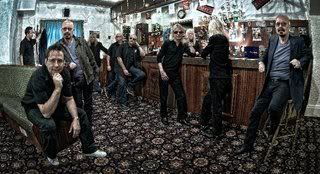
Most definitely, the NWOBHM was the start of Magnum getting lumped in – fortuitously mostly – with metal. But one supposes they also gathered a little tailwind from the neo-prog movement, the NWOBProg, as it were.
“Yeah, more mid-‘80s for that, I think. But of course you got a lot of bad glam stuff coming out at the same time, so we invested in some rather loud stage clothes and things and sort of joined the trend visually as well. The music remained the same. We did go a tiny bit commercial with the likes of Vigilante, bringing in Roger Taylor from QUEEN to help produce that – we got the commercialism of Queen production on that. Which I thought, still to this day, sounds great. And that was followed by our biggest albums to date which was Wings Of Heaven, which was 1988, which had the might of the record industry behind it. I mean, let’s face it, if you got the machine working for you, you can make just about anything a hit. And of course that was the introduction of Fairlights and computers and things like that, which helped us to compete with some of those sounds, some of those techniques that were coming out, with the likes of FRANKIE GOES TO HOLLYWOOD and stuff like that. Suddenly that technology was available to us, and we used that on Wings Of Heaven, which was a long-winded way of recording things but you know, it comes out the speakers great. So we sort of progressed as technology progressed (laughs).”But back to the current day, and the realities of the music in 2011, Stanway figures, “We’re still very fortunate to have a record deal in this day and age, where these things seem to be disappearing. But when we finish this tour, we’ve got hopefully a few festivals in the summer, a few select dates before Christmas, and then Tony has already started writing the next album, so we’ll be back in the studio in the new year making another album.”
For more info visit Magnumonline.co.uk.


